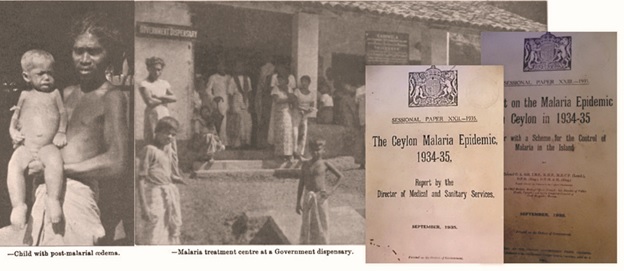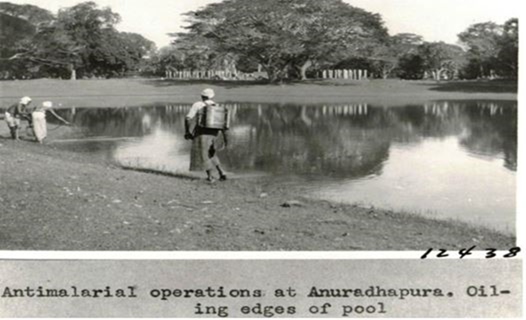On 25 April this year the global malaria community will unite to commemorate the World Malaria Day. World Malaria Day 2023 will be marked under the theme “Time to deliver zero malaria: invest, innovate, implement”. Within this theme, WHO will focus on the third “i” – implement – and notably the critical importance of reaching marginalized populations with the tools and strategies that are available today. In line with the global theme, the Anti-Malaria Campaign (AMC) of the Ministry of Health has highlighted their commitment with the local theme of ‘Sustaining zero-malaria: reaching high-risk populations’.
Malaria has been endemic in Sri Lanka for many centuries. Throughout the 20th century, Sri Lanka experienced several major outbreaks of malaria, during the periods of 1934-35, 1967-68 and 1987-88. The most devastated one on record was the malaria outbreak which occurred in 1934-35, by which a total of 1.5 million individuals were infected and nearly 80 000 died. During the prior epidemics, use of chemical insecticides (e.g., Dichlorodiphenyltrichloroethane (DDT) and malathion) played a major role while case-based surveillance with prompt case detection and radical treatment were the mainstay of elimination efforts in the more recent years. Commitment to eliminate malaria at all levels within the health sector was a major call and Sri Lanka was able to eliminate malaria in 2016.

Figure 1: Captures during the malaria epidemic in 1934-1935
Credits: AMC Sri Lanka

Figure 2: Malaria preventive activities carried out in rural Anuradhapura district
Credits: AMC Sri Lanka
AMC was able to overcome successfully in the recent past include the detection of a new mosquito vector, Anopheles stephensi, which is as a significant threat to malaria control and elimination (in December 2016), the ‘introduced malaria case’ (reported in 2018) and the transfusion-induced malaria case (reported in 2021).
Since 2021, the malaria control program has been solely dependent on the Government of Sri Lanka for funding (before some donor funds were available). The activities for which uninterrupted funding is required to prevent re-establishment of malaria, are entomological and parasitological surveillance, case detection and follow-up of imported malaria cases, risk group surveillance, advocacy, awareness and training programmes, chemoprophylaxis, and follow-up of travellers to endemic countries and monthly review of activities undertaken in all districts. In the present economic crisis, the support rendered by the World Health Organization Country Office has been significant in sustaining the PoR phase in the country. Ensuring an uninterrupted supply of anti-malarial commodities (medicines, LLINs, RDTs and insecticides), the continued support to the clinician training programmes and technical assistance in development of the Strategic Plan for Prevention of Re-establishment of Malaria (2023-2027) were the main activities supported by WHO.
Keeping the theme for the year in mind, the AMC plans to enhance risk group surveillance by increasing collaboration with gem traders, tri-force personnel, and returnees from malaria endemic countries.
WHO will continue supporting Sri Lanka to sustain the Prevention of Pe-establishment of Malaria in partnership with other stakeholders. The support will mainly focus on updating the strategies which will help to prevent re-establishment, ensuring the uninterrupted supply of quality- assured anti-malarial medicines, capacity building of existing staff who were not exposed to malarial outbreaks during their service periods among others.
Acknowledgement: Anti Malaria Campaign
References:
- National Strategic Plan for Prevention of Re-introduction of Malaria in Sri Lanka 2018-2022
- https://www.who.int/campaigns/world-malaria-day/2023
